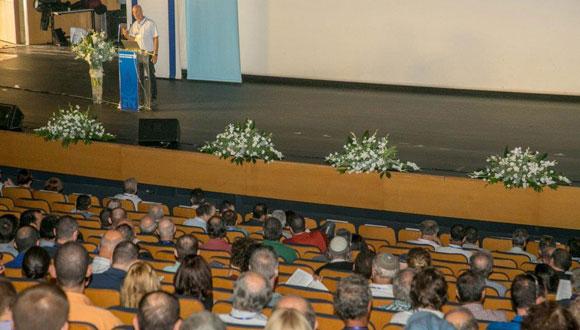Physics Colloquium: Observation of quantum Hawking radiation and its entanglement in an analogue black hole
Prof. Jeff Steinhauer, Technion
Abstract:
We observe spontaneous Hawking radiation, stimulated by quantum vacuum fluctuations, emanating from an analogue black hole in an atomic Bose-Einstein condensate. The Hawking radiation is observed via the correlations between the Hawking radiation exiting the black hole and the partner particles falling into the black hole. The quantum nature of the Hawking radiation is observed through entanglement. The experiment is seen to be well within the quantum regime, since the measured Hawking temperature is far below the upper limit for quantum entanglement. A broad energy spectrum of entangled Hawking pairs are observed. Maximal entanglement is observed for the high energy part of the Hawking spectrum, while the lowest energies are not entangled. Thermal behavior is seen at very low and high energies. Further insight is obtained by a preliminary experiment in which the horizon is caused to oscillate at a fixed frequency, which stimulates waves travelling into and out of the black hole. The rate of particle production and the dispersion relation measured in the preliminary experiment are consistent with the Hawking radiation experiment. Additional confirmation of the results is obtained through a numerical simulation, which demonstrates that the Hawking radiation occurs in an approximately stationary background. The measurement reported here verifies Hawking’s calculation, which is viewed as a milestone in the quest for quantum gravity. The observation of Hawking radiation and its entanglement verifies important elements in the discussion of information loss in a real black hole.
Event Organizer: Dr. Ishay Pomerantz


